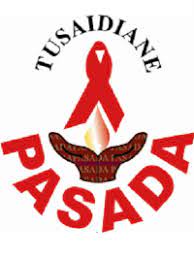TERMS OF REFERENCE FOR THE FACILITATION OF DATA QUALITY ASSESSMENT IN DAR ES SALAAM REGION – SCOPE OF WORK
- Scope Of Work
5.1 Planning and Preparation
- Develop a detailed work plan and timeline for the DQA process.
- Coordinate with PASADA team and site staff to schedule DQA visits.
- Prepare and review DQA tools, checklists, and guidelines.
- Train and orient site staff on the DQA process and expectations.
5.2 Data Collection
- Visit each of the 19 PASADA care and treatment sites as per the scheduled plan.
- Conduct thorough reviews of patient records, registers, and electronic databases.
- Verify the accuracy and completeness of data entries.
- Identify discrepancies and gaps in data collection and reporting.
5.3 Data Verification and Validation
- Cross-check data from multiple sources to ensure consistency.
- Validate data against source documents and records.
- Ensure adherence to data collection protocols and standards.
5.4 Reporting and Documentation
- Document findings, discrepancies, and recommendations in a structured report.
- Provide detailed feedback to site staff on data quality issues and corrective actions.
- Submit a comprehensive DQA report to the PASADA team after each quarterly assessment.
5.5 Capacity Building
- Conduct training sessions for site staff on best practices in data collection and management.
- Provide ongoing support and mentorship to site staff to improve data quality.
- Develop and disseminate data quality improvement plans and guidelines.
5.6 Follow-up and Monitoring
- Monitor the implementation of corrective actions and improvements.
- Conduct follow-up visits to ensure sustained data quality improvements.
- Provide regular updates to the PASADA team on the progress and outcomes of the DQA.
- Deliverables:
6.1 Work Plan and Timeline
- A detailed work plan outlining the schedule and activities for the DQA process.
6.2 Training Materials
- Training modules and materials for site staff on data quality management.
6.3 DQA Reports
- DQA reports detailing findings, discrepancies, and recommendations.
6.4 Improvement Plans
- Data quality improvement plans for each site based on DQA findings.
6.5 Follow-up Reports
- Reports on the implementation and impact of corrective actions.
- Qualifications:
7.1 Experience
- Minimum of 10-15 years of experience in health data management and quality assessment.
- Experience working with health programs in Tanzania or similar settings.
7.2 Skills
- Strong analytical and data validation skills.
- Excellent report writing and documentation skills.
- Proficiency in using data management and analysis software.
7.3 Education
- Bachelor’s degree in public health, Health Informatics, or related field. Advanced degree preferred.
- Timeline
The DQA will be conducted within 45 days with 19 sites and within all clinical and community technical areas as per PASADA Model (Community and Family Centred Approach).
Detailed timelines will be provided in the work plan.
- Reporting
- The facilitators will report to the PASADA Director of Clinical Services with support from the Monitoring and Evaluation (M&E) Manager.
- Regular communication and updates will be maintained throughout the DQA process.
- 9. Conclusion
The Data Quality Assessment (DQA) process is crucial for ensuring the accuracy, reliability and integrity of data at PASADA Care and treatment sites. By systematically assessing and improving data quality, PASADA can enhance its program management, optimize resource allocation, and ultimately provide better care and support to individuals affected by HIV/AIDS.
The successful implementation of this DQA will depend on the collaboration and dedication of the entire team and site staff. Through thorough planning, rigorous data collection, meticulous verification, and continuous capacity building, PASADA is committed to maintaining the highest standards of data quality.
As we move forward, the findings and recommendations from the DQA will guide our efforts to address data quality issues and implement effective corrective actions. And implement effective corrective actions. Regular follow-up and monitoring will ensure that improvement is sustained over time, contributing to the overall success of PASADA`s mission.
How to Apply:
To apply, please send your organization profile/ CV and a short proposal (Maximum 3 pages) that summarizes your understanding of the ToR and details of how you plan to execute the assignment including the proposed budget in TZS.
Submit your proposal to:
The Tender Committee
PASADA
Usalama Street, Temeke
- O. Box 70225, Dar es Salaam, Tanzania
Or by email procurement@pasada.or.tz with the subject: Facilitation of Data Quality Assessment in 19 sites in Dar Es Salaam Region. The deadline for applications is 22nd August 2024. Only shortlisted candidates will be contacted for further inquiries and details.
TERMS OF REFERENCE FOR THE FACILITATION OF DATA QUALITY ASSESSMENT IN DAR ES SALAAM REGION
Period of Performance: August 2024 to September 30, 2024
Location: Tanzania – Dar Es Salaam
Reports to: Clinical Director & Data Manager
- Introduction and Background
PASADA Tanzania is a faith-based organization working in to contribute to Pastoral activities and services for poor and vulnerable populations in Tanzania. Since its establishment in 1992, PASADA has provided services in the areas of Health mainly HIV/AIDS at both facility and community settings, Livelihood, Economic empowerment, and Community development. PASADA continues to offer both spiritual and physical support to all people without any form of discrimination and always aims at restoring dignity and respect to all humankind.
Over the years, PASADA’s role expanded to include medical services for HIV/AIDS, tuberculosis, malaria, and other diseases, along with community-based care. As of now, PASADA is providing care and treatment services in both Dar es Salaam and Coastal regions respectively and for Dar es Salaam, 19 CTCs are established to provide comprehensive HIV services to individuals and their families.
- The Objectives of the assignment
The objective is to conduct a comprehensive Data Quality Assessment (DQA) at 19 PASADA care and treatment sites in the Dar es Salaam Region to ensure data accuracy, completeness, and reliability. The DQA will be conducted quarterly to maintain high data quality standards and improve data management practices.
- Rationale for Conducting Quarterly Data Quality Assessments (DQA).
Conducting quarterly Data Quality Assessments (DQA) at PASADA Care and Treatment Sites in Dar es Salaam Region is essential for maintaining high standards of data quality, improving program management and ensuring the best possible outcomes for patients and the community. The DQA exercise will focus on the following objectives:
- Ensuring Data Accuracy and Reliability
- Accurate and reliable data are crucial for effective decision-making and resource allocation. Quarterly DQAs help identify and correct errors in data collection and entry, ensuring that the information used for program management is dependable.
- Enhancing Program Management
- High-quality data enable better tracking of patient outcomes, service delivery, and program performance. Regular DQAs ensure that the PASADA team has the necessary information to manage and improve care and treatment services effectively.
- Compliance with Reporting Requirements
- Adhering to national and international reporting standards is essential for PASADA. Quarterly DQAs ensure that data submitted to stakeholders, including government agencies and donors, meet these standards and reflect the true performance of the care and treatment sites.
- Identifying and Addressing Data Quality Issues
- Routine DQAs help identify common data quality issues, such as incomplete records, data entry errors, and inconsistencies. Addressing these issues promptly prevents them from becoming systemic problems that could compromise the integrity of the entire data management system.
- Facilitating Continuous Improvement
- Quarterly assessments provide regular opportunities to review and enhance data collection and management processes. This ongoing evaluation and improvement cycle fosters a culture of continuous quality improvement within PASADA’s care and treatment sites.
- Supporting Evidence-Based Decision Making
- Reliable data are essential for evidence-based decision-making. By ensuring data quality, PASADA can make informed decisions about program strategies, resource allocation, and interventions, ultimately improving patient care and outcomes.
- Enhancing Accountability and Transparency
- High-quality data increase accountability and transparency in health service delivery. Regular DQAs demonstrate PASADA’s commitment to maintaining high standards of data integrity and accountability to stakeholders, including patients, funders, and regulatory bodies.
- Building Capacity and Strengthening Systems
- The DQA process includes training and capacity-building components for site staff. This not only improves their skills in data management but also strengthens the overall health information system, making it more resilient and efficient.
- Supporting Monitoring and Evaluation Efforts
- Accurate data are fundamental for effective monitoring and evaluation (M&E) of health programs. Quarterly DQAs ensure that the data used for M&E activities are accurate, facilitating better tracking of program performance and impact.
- Promoting Patient Safety and Quality of Care
- High-quality data are critical for monitoring patient safety and the quality of care. By identifying and correcting data quality issues, DQAs help ensure that patients receive the best possible care based on accurate and complete information.
- Meeting Donor and Partner Expectations
- Many donors and partners require regular data quality assessments as part of their funding agreements. Conducting quarterly DQAs helps PASADA meet these requirements, securing ongoing support and funding for its programs.
| SN | FACILITY NAME | DISTRICT | Tier |
| 1 | UPENDANO | TEMEKE | 1 |
| 2 | CONSOLATA SISTERS | TEMEKE | 1 |
| 3 | ST.FRANCIS XAVIERY | TEMEKE | 2 |
| 4 | AREA II | TEMEKE | 3 |
| 5 | ST.CLARA DISPENSARY (Baby site) | TEMEKE | 3 |
| 6 | MBWENI MISSION | KINONDONI | 1 |
| 7 | TEGETA MISSION | KINONDONI | 1 |
| 8 | ANTONIO VERNA | KINONDONI | 2 |
| 9 | TANDALE RC CLINIC | KINONDONI | 4 |
| 10 | LUGURUNI HOSPITAL | UBUNGO | 2 |
| 11 | MOYO SAFI WA MARIA HOSP | UBUNGO | 3 |
| 12 | EDWARD MICHAUD HOSPITAL | UBUNGO | 3 |
| 13 | MANZESE PARISH CLINIC (Baby site) | UBUNGO | 4 |
| 14 | MSIMBAZI MISSION DISP | ILALA | 2 |
| 15 | CARDINAL RUGAMBWA HOSP | ILALA | 1 |
| 16 | ST. CAMILLUS DISPENSARY | ILALA | 2 |
| 17 | MAKOKA DISPENSARY | ILALA | 3 |
| 18 | ST. BENEDICT DISPENSARY | ILALA | 3 |
| 19 | KIGAMBONI PARISH CLINIC (Baby site) | KIGAMBONI | 4 |
How to Apply:
To apply, please send your organization profile/ CV and a short proposal (Maximum 3 pages) that summarizes your understanding of the ToR and details of how you plan to execute the assignment including the proposed budget in TZS.
Submit your proposal to:
The Tender Committee
PASADA
Usalama Street, Temeke
- O. Box 70225, Dar es Salaam, Tanzania
Or by email procurement@pasada.or.tz with the subject: Facilitation of Data Quality Assessment in 19 sites in Dar Es Salaam Region. The deadline for applications is 22nd August 2024. Only shortlisted candidates will be contacted for further inquiries and details.

